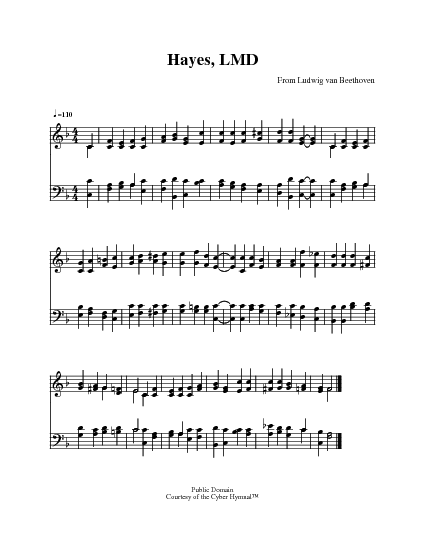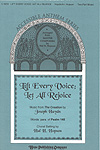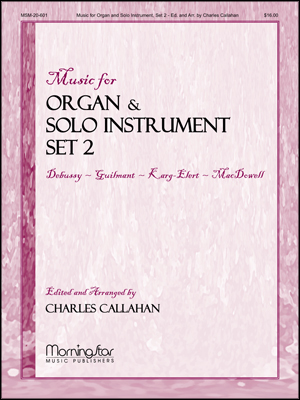Author: John Wesley

John Wesley, the son of Samuel, and brother of Charles Wesley, was born at Epworth, June 17, 1703. He was educated at the Charterhouse, London, and at Christ Church, Oxford. He became a Fellow of Lincoln College, Oxford, and graduated M.A. in 1726. At Oxford, he was one of the small band consisting of George Whitefield, Hames Hervey, Charles Wesley, and a few others, who were even then known for their piety; they were deridingly called "Methodists." After his ordination he went, in 1735, on a mission to Georgia. The mission was not successful, and he returned to England in 1738. From that time, his life was one of great labour, preaching the Gospel, and publishing his commentaries and other theological works. He died in London, in 17…
Go to person page >Father of all, Whose powerful voice. C. Wesley. [The Lord's Prayer.] First published in Hymns & Sacred Poems, 1742, p. 275, in 9 stanzas of 8 lines, as a Paraphrase of the Lord's Prayer (Poetical Works, 1868-1872, vol. ii. p. 335). In the Wesleyan Hymn Book, 1780, it was given in three parts:—Pt. i. "Father of all, Whose powerful voice"; Pt. ii. "Son of Thy Sire's Eternal love"; Pt. iii. "Eternal, spotless Lamb of God," and numbered respectively 225, 226, 227. In this form it has been repeated in later editions of the Wesleyan Hymn Book, and has passed into other collections. In addition the hymn, "Father, 'tis Thine each day to yield," in Hall's Mitre, 1836, No. 214, and E. Osier's Church & King, June, 1837, is composed of Wesley's stanza vi. altered, and a new stanza by Osier. The popular doxology "Blessing and honour, praise and love," much used in America, is the closing stanza of Wesley's paraphrase. This hymn is sometimes ascribed to John Wesley, but upon what authority we have been unable to ascertain.
--John Julian, Dictionary of Hymnology (1907)
=================
Father of all, Whose powerful voice, p. 368, ii. Another cento from this hymn beginning “All ye who owe to God your birth," is in common use as in Hatfield's Church Hymn Book, N. Y., 1872.
--John Julian, Dictionary of Hymnology, Appendix, Part II (1907)
Notes
Father of all, Whose powerful voice. C. Wesley. [The Lord's Prayer.] First published in Hymns & Sacred Poems, 1742, p. 275, in 9 stanzas of 8 lines, as a Paraphrase of the Lord's Prayer (Poetical Works, 1868-1872, vol. ii. p. 335). In the Wesleyan Hymn Book, 1780, it was given in three parts:—Pt. i. "Father of all, Whose powerful voice"; Pt. ii. "Son of Thy Sire's Eternal love"; Pt. iii. "Eternal, spotless Lamb of God," and numbered respectively 225, 226, 227. In this form it has been repeated in later editions of the Wesleyan Hymn Book, and has passed into other collections. In addition the hymn, "Father, 'tis Thine each day to yield," in Hall's Mitre, 1836, No. 214, and E. Osier's Church & King, June, 1837, is composed of Wesley's stanza vi. altered, and a new stanza by Osier. The popular doxology "Blessing and honour, praise and love," much used in America, is the closing stanza of Wesley's paraphrase. This hymn is sometimes ascribed to John Wesley, but upon what authority we have been unable to ascertain.
--John Julian, Dictionary of Hymnology (1907)
=================
Father of all, Whose powerful voice, p. 368, ii. Another cento from this hymn beginning “All ye who owe to God your birth," is in common use as in Hatfield's Church Hymn Book, N. Y., 1872.
--John Julian, Dictionary of Hymnology, Appendix, Part II (1907)


 My Starred Hymns
My Starred Hymns






